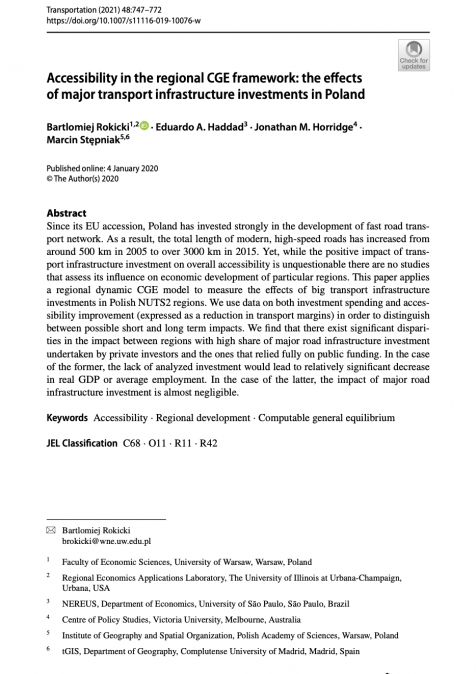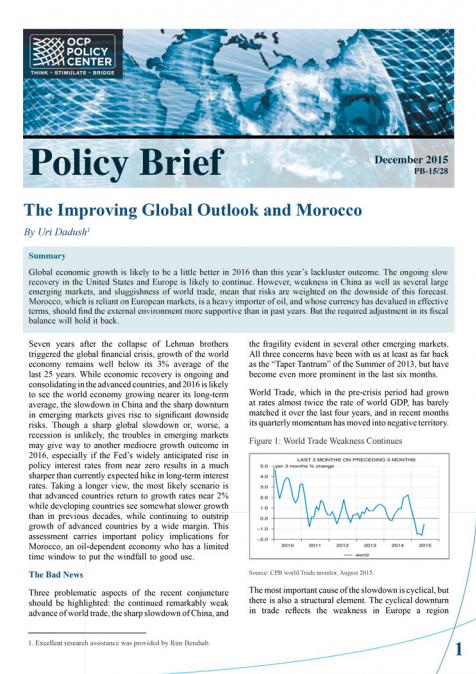Publications /
Paper in Academic Journals
Since its EU accession, Poland has invested strongly in the development of fast road transport network. As a result, the total length of modern, high-speed roads has increased from around 500 km in 2005 to over 3000 km in 2015. Yet, while the positive impact of transport infrastructure investment on overall accessibility is unquestionable there are no studies that assess its influence on economic development of particular regions. This paper applies a regional dynamic CGE model to measure the effects of big transport infrastructure investments in Polish NUTS2 regions. We use data on both investment spending and accessibility improvement (expressed as a reduction in transport margins) in order to distinguish between possible short and long term impacts. We find that there exist significant disparities in the impact between regions with high share of major road infrastructure investment undertaken by private investors and the ones that relied fully on public funding. In the case of the former, the lack of analyzed investment would lead to relatively significant decrease in real GDP or average employment. In the case of the latter, the impact of major road infrastructure investment is almost negligible.







